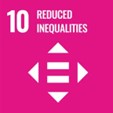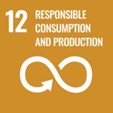2023–24 Departmental Sustainable Development Strategy Report
ISSN 2818-467X
Click to view the report in PDF.
Introduction
The 2022–26 Federal Sustainable Development Strategy (FSDS) presents the Government of Canada’s sustainable development goals and targets, as required by the Federal Sustainable Development Act. This is the first FSDS to be framed using the 17 Sustainable Development Goals (SDGs) of the United Nations 2030 Agenda and provides a balanced view of the environmental, social, and economic dimensions of sustainable development.
In keeping with the purpose of the Act, to make decision-making related to sustainable development more transparent and accountable to Parliament, the Office of the Public Sector Integrity Commissioner of Canada (the Office) supports the goals laid out in the FSDS through the activities described in the Office’s 2023–27 Departmental Sustainable Development Strategy (DSDS). The present report provides a report on progress related to the Office’s DSDS in the fiscal year 2023–24.
The Federal Sustainable Development Act also sets out seven principles that must be considered in the development of the FSDS as well as DSDSs. These principles have been considered and incorporated in the Office’s DSDS and 2023–24 DSDS Report.
To promote coordinated action on sustainable development across the Government of Canada, the Office’s departmental strategy reports on Canada’s progress towards implementing the 2030 Agenda and advancing the SDGs, supported by the Global Indicator Framework (GIF) and Canadian Indicator Framework (CIF) targets and indicators. The present report also now captures progress on SDG initiatives that fall outside the scope of the FSDS.
Commitments

Goal 10: Advance Reconciliation with Indigenous Peoples and Take Action on Inequality
| FSDS Context | To take action on inequality and advancing reconciliation with First Nations, Inuit, and Métis communities, the Government of Canada is committed to implementing the United Nations Declaration on the Rights of Indigenous Peoples. The Office shares this goal, and will raise awareness by providing mandatory training for all its employees on the United Nations Declaration on the Rights of Indigenous Peoples, and on the social, economic and environmental inequalities that persist in Canada. |
|---|---|
| Target Theme | Advancing reconciliation with First Nations, Inuit, and the Métis communities |
| Target | Between 2023 and 2026, and every year on an ongoing basis, develop and table annual progress reports on implementing the United Nations Declaration on the Rights of Indigenous Peoples Act (Minister of Justice and Attorney General of Canada) |
| Implementation Strategy | Departmental Action | Performance Indicator, Starting Point, Target | How the Departmental Action Contributes to the FSDS Goal and Target and, Where Applicable, to Canada’s 2030 Agenda National Strategy and SDGs | Results Achieved |
|---|---|---|---|---|
| Implement the United Nations Declaration on the Rights of Indigenous Peoples Act | Provide Indigenous cultural competency training, training on the United Nations Declaration on the Rights of Indigenous Peoples, or both | Performance indicator: Percentage of employees who have completed Indigenous cultural competency training | This action encourages public service employees to increase their cultural competency skills and awareness of issues related to First Nations, Inuit and Métis in Canada, and their knowledge of the UN Declaration. This action contributes to the development of necessary cultural competency knowledge and skills to implement the UN Declaration. | Indicator result: 97% in 2023–24 |
| Starting point: New program started on November 2, 2023 | ||||
| Program: Internal Services | Target: 90% by November 2, 2024 | Relevant targets or ambitions:
|

Goal 12: Reduce Waste and Transition to Zero-Emission Vehicles
| FSDS Context | The Government of Canada is committed to transitioning to a cleaner and more circular economy that prioritizes reducing consumption and waste generation, to reduce negative impacts on the environment. The Office is also dedicated to the reduction of waste in its daily operation, by ensuring that all procurement officers receive training on green procurement. |
|---|---|
| Target Theme | Federal Leadership on Responsible Consumption |
| Target | The Government of Canada’s procurement of goods and services will be net-zero emissions by 2050, to aid the transition to a net-zero, circular economy (All Ministers) |
| Implementation Strategy | Departmental Action | Performance Indicator, Starting Point, Target | How the Departmental Action Contributes to the FSDS Goal and Target and, Where Applicable, to Canada’s 2030 Agenda National Strategy and SDGs | Results Achieved |
|---|---|---|---|---|
| Strengthen green procurement criteria | Ensure all procurement and materiel management specialists are trained in green procurement (such as the Canada School of Public Service course on green procurement, or equivalent) within one year of being identified | Performance indicator: Percentage of procurement and materiel management specialists trained in green procurement within one year of being identified | Green procurement incorporates environmental considerations into purchasing decisions and is expected to motivate suppliers to reduce the environmental impact of the goods and services they deliver, as well as their supply chains | Indicator result: 100% in 2023–24 |
| Starting point: New program started on November 2, 2023 | ||||
| Program: Internal Services | Target: 100% of procurement officers and material management specialists receive training within one year of being identified | Relevant targets or ambitions:
|

Goal 13: Take Action on Climate Change and Its Impacts
| FSDS Context | The effects of climate change, such as extreme temperatures, are affecting Canadians now more than ever before. To reduce the effects of climate change, all must do their part. The Office is committed to taking action on climate change and its impacts by implementing the Green Government Strategy through measures that reduce the environmental burden of its daily operations. |
|---|---|
| Target Theme | Federal Leadership on Greenhouse Gas Emissions Reductions and Climate Resilience |
| Target | The Government of Canada will transition to climate resilient operations by 2050 (All Ministers) |
| Implementation Strategy | Departmental Action | Performance Indicator, Starting Point, Target | How the Departmental Action Contributes to the FSDS Goal and Target and, Where Applicable, to Canada’s 2030 Agenda National Strategy and SDGs | Results Achieved |
|---|---|---|---|---|
| Implement the Greening Government Strategy through measures that reduce greenhouse gas emissions, improve climate resilience, and green the government’s overall operations | Ensure sustainable consumption and production patterns by applying green procurement to all material and supplies purchased in day-to-day operations | Performance indicator: Percentage of material and supplies purchased by the Office that meet green procurement criterion | Reduce the environmental impact and ensure best value in government procurement decisions by giving preference to materials containing recycled and post-consumer content and certified by external environmental agencies like EcoLogo and EnergyStar. This action includes purchasing chlorine free and 100% recycled paper. | Indicator result: 82% in 2023–24 |
| Starting point: New program started on November 2, 2023 | ||||
| Program: Internal Services | Target: 80% of all material and supplies purchased by the Office meet green procurement criterion | Relevant targets or ambitions:
|
Integrating Sustainable Development
The Office will continue to ensure that its decision-making process includes consideration of FSDS goals and targets through its Strategic Environmental Assessment (SEA) process. An SEA for a policy, plan or program proposal includes an analysis of the impacts of the given proposal on the environment, including on relevant FSDS goals and targets.
Public statements on the results of the Office’s assessments are made public when an initiative has undergone a detailed SEA (see here). The purpose of the public statement is to demonstrate that the environmental effects, including the impacts on achieving the FSDS goals and targets, of the approved policy, plan or program have been considered during proposal development and decision-making.
The Office did not complete any detailed SEAs in 2023–24.